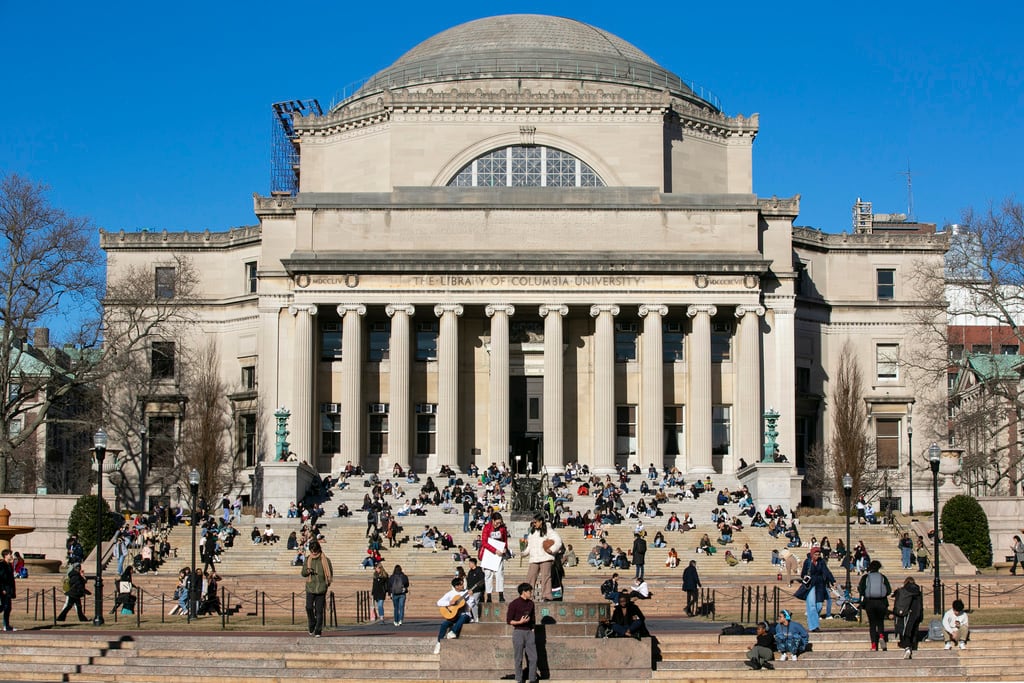Numerous prestigious American universities have reached agreements with the administration of President Donald Trump, making financial contributions to reinstate withholding federal funds and making political compromises.
Columbia, Brown, and the University of Pennsylvania—all Ivy League schools—came to deals to end government investigations. Citing its agreement with Columbia as a model for other universities, the Republican administration is demanding more.
For other universities, including Harvard, which has been in talks with the White House while battling in court over the lost grants, billions of dollars in research funding have been frozen.
Like no other president, Trump has pushed for reforms in higher education by using his authority over federal research funds to accuse elite universities of harboring antisemitism and radical liberal ideologies.
Here are some universities that have been impacted by the administration’s budget cuts.
On July 23, Columbia announced that it had consented to pay a $200 million fine in order to reinstate government financing.
The institution faced the possibility of losing billions of dollars in government funding, including grants totaling over $400 million that were revoked early this year. The administration withdrew the funds due to what it claimed was Columbia’s inaction on campus antisemitism during the Israel-Hamas conflict.
Columbia agreed to the administration’s requests, which included a disciplinary committee looking into students who were critical of Israel, a revision of its student disciplinary procedure, and the application of a federally supported definition of antisemitism to instruction.
The Treasury Department will receive the fine, according to federal officials, and it cannot be used until Congress appropriates it. Additionally, Columbia agreed to contribute $21 million to a compensation fund for staff members who might have experienced antisemitism.
A provision in the agreement that Columbia claims maintains its independence states explicitly that the government has no power to control academic discourse, hiring practices, or admissions choices.
Brown agreed to give $50 million to job development organizations in Rhode Island on Wednesday. That would put an end to inquiries into claims of racial bias and antisemitism in Brown admissions as well as restore dozens of lost federal research contracts.
Brown made a number of compromises, including removing any racial bias from the admissions process and accepting the government’s definition of male and female.
Brown’s deal does not involve a finding of wrongdoing, just as the one with Columbia. It states that neither Brown’s curriculum nor the subject matter of scholarly discourse may be dictated by the government.
Penn agreed to amend three school records set by transgender swimmer Lia Thomas and to offer an apology to female athletes who were harmed by Thomas’s involvement on the women’s swimming team as part of a July settlement that ended a federal civil rights dispute.
As part of the administration’s larger effort to exclude transgender athletes from women’s and girls’ sports, the Education Department looked into Penn. The administration had given Penn $175 million in funding as part of the case.
The administration has accused Harvard, the oldest and richest university in the country, of fostering antisemitism and has frozen more than $2.6 billion in research funds to the university. Harvard has retaliated by filing multiple lawsuits.
The administration is requesting that Harvard pay a sum that is significantly greater than Columbia in order to negotiate a potential settlement.
In April, the White House declared that it had suspended over $1 billion in government funding for Cornell while it looked into claims of civil rights abuses.
On March 10, the Education Department sent a letter to over 60 universities, including the Ivy League school, asking them to take measures to protect Jewish students or risk enforcement action.
Similar to Cornell, some federal money for Northwestern was suspended in April. The administration estimated the sum to be around $790 million.
This week, $108 million in federal funds for Duke were frozen by the government. Days after the departments of Education and Health and Human Services jointly released a letter accusing Duke of racial bias in employment and admissions, the National Institutes of Health placed a stop on funding.
Christopher Eisgruber, the president of Princeton, announced on campus on April 1 that dozens of research funds had been suspended without a clear explanation. Federal organizations like the Pentagon, NASA, and the Department of Energy provided the grants.






